January 25, 2020
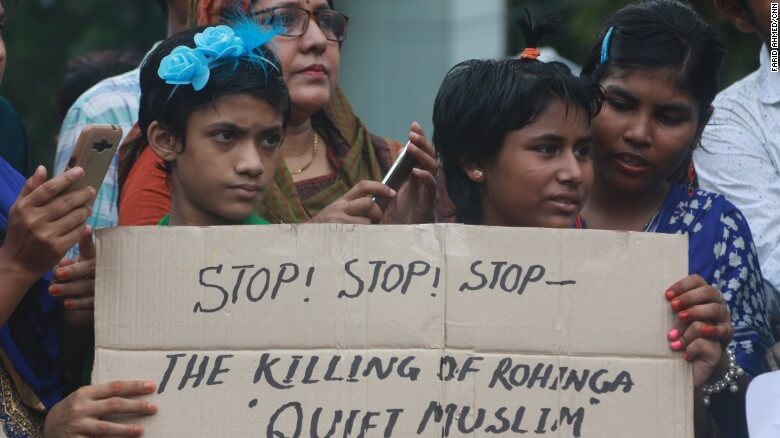
Weekly Report 24 January 2020

In a unanimous decision, the International Court of Justice has ordered Myanmar to “prevent all genocidal acts against Rohingya Muslims.” Following years of international scrutiny and protests against Myanmar’s treatment of its Muslim population, the ICJ finally stepped in. The government is now responsible for following Act Two of the Genocide Convention, preventing the military from carrying out genocide, reporting back to the ICJ in four months, and continuing to report to the ICJ every six months.
The Office of the President has released a summary confirming that war crimes have indeed been committed along with “serious human rights violations.” However, the government still denies any genocidal intent or crimes against humanity. The Office of the President has not fully addressed the full scale of the crimes committed against the Rohingya, dismissing claims of sexual violence and rape.

Students at Njube High School in Bulawayo staged a protest Monday over deteriorating education conditions. Nearly 200 students marched through the streets with the rallying cry “education is ours.” Zimbabwe’s quality of education has been declining in light of their economic crisis, with teacher pay being so low that they have resorted to going on strike. The main teacher who helped stage the protest has been forced to flee the country after learning he was wanted by state security agents.
Additionally, opposition leader Nelson Chamisa called on supporters to ready themselves for more protests in a rally this week. The worsening economic crisis has only been exacerbated further by the worst drought the country has seen in 40 years. “The constitution allows (us) to demonstrate when we feel it’s necessary. So this is going to be a year of demonstrations and action,” Chamisa said.
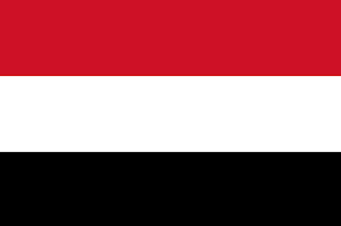
Yemen experienced the bloodiest attack since the start of its conflict five years ago this past Saturday. Ballistic missiles struck a mosque at the al-Estiqbal military camp in Ma’rib where soldiers were assembled for evening prayers. The death toll is currently at 116 and expected to rise. The government announced the Houthi rebel movement is to blame, but no group has claimed responsibility for the attack yet. Fighting between rebel and government groups has escalated in the days following the attack, which is sure to complicate the country’s steps towards peace.
The civil war, which has been raging on since 2014, has become one of the regions deadliest conflicts. The United Nations special envoy to Yemen condemned the attacks, saying that “such actions can derail this progress [towards de-escalation]. The negotiation tables are more effective than battlefields in resolving the conflict.”

Abdolhossein Mojaddami, a local paramilitary security force commander, was gunned down by two masked men on Wednesday. Mojaddami was an associate of the recently assassinated Soleimani. The motive behind the killing remains unclear.
In the growing aftermath of the United States’ targeted killing of Iranian General Qasem Soleimani, tensions between the two countries are at an all-time high. Following Iran’s confirmation that it shot down the Ukranian commercial airliner by mistake, the country’s administration is experiencing a wave of protests. These protests mark the most serious challenge that the Supreme Leader has faced in decades.
In response to the protests, Supreme Leader Ayatollah Ali Khamenei defended the military in a rare public appearance. Leading Friday prayers, he called for national unity while criticizing the US government and its involvement in the region.

What began as peaceful protests in Beirut months ago have escalated into violence in recent days. More than 540 protesters have been injured in these clashes with police. The protesters’ original complaints against tax hikes have turned into calls for revolution against the ruling class.
In response, Lebanon’s leaders formed a new government on Wednesday with Hassan Diab as their new Prime Minister. He stated that the new government “represents the aspirations of the demonstrators who have been mobilized nationwide for more than three months.” This is the first established government Lebanon has seen since the resignation of the last Prime Minister in October.
Despite Diab’s promising remarks, protesters have yet to be satisfied. A reporter for Al Jazeera has stated that the people “have lost faith in the ruling authorities. They believe they should give up power.” Citizens are skeptical of the new government and are desperate for change and a solution to their economic plight.
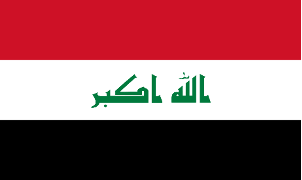
Hundreds of thousands of protesters took to the streets of Baghdad on Friday, calling for US troops to end their occupation of the country. Iraq has seen renewed protests and clashes with police forces ever since the US-backed airstrike killed General Qassem Soleimani in neighboring Iran. While the government has stated that they do not want to be caught in the middle of this feud, the death toll of these protests has spiked.
Many Iraqis see the US occupation as a breach of their own sovereignty, as there are still roughly 5,000 US troops stationed in Iraq. Their parliament voted recently to expel the troops from their country, but US military leaders have not agreed to these demands.

Hong Kong’s protesters are showing no signs of slowing down in the new year; thousands have taken to the streets to continue demanding for democracy.
A number of foreign dignitaries and diplomats have sent an open letter to Chief Executive Carrie Lam, calling for her to address the problem and respond to the six months of protests. That same day, China’s President Xi Jinping stated that Beijing would “resolutely safeguard the prosperity and stability” of Hong Kong.
Days later, China fired Wang Zhimin, the country’s top liaison in charge of relations between China and Hong Kong.

Two provincial military officers have been connected to an incident involving the torturing of a villager who was in their custody. Colonel Sar Bunsoeung and First Lieutenant Chhoy Rathana have stated that they “neglected to protect five villagers involved in a land dispute.” The Cambodian Human Rights Committee has released statements concerning the case, saying that it “will be a warning to powerful government officials and authorities not to violate the law.”
One of the civilians in custody passed away during his time with the two military officers. Following the civilian’s death, Prime Minister Hun Sen created a special committee to look further into the case. Should the officers be found guilty, they could serve two to five years in prison.

Sudan had entered into a new period of political instability following recent clashes between loyalists and military forces. On January 14th, a shooting took place in Khartoum, causing the airport to close. The rebellion was led by ex-elite troops who had pledged their loyalty to Bashir. Two soldiers were killed and four were injured. This is the most extreme case of unrest since Bashir was overthrown in April of 2019. The airport has since reopened.
Ever since Sudanese leader Omar al-Bashir was placed into a social reform facility this past December for corruption, protesters have taken to the streets in hopes of creating a new form of government. School girls are singing songs of protests and staging gatherings of their own. These types of protests would not have been allowed under Bashir, as they would have been met with “tear gas and batons, perhaps worse.” In this new era, protesters no longer fear the police, a feat that was once impossible under Bashir’s rule.
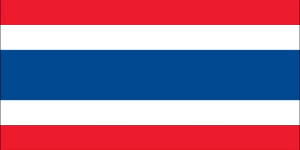
The Future Forward Party, still in its nascent stages, avoided disbandment on January 21st, despite having more than 25 legal cases being presented against it. The FFP and its leaders have been found not guilty of attempting to overthrow the current regime.
Despite being less than a year old, the FFP amassed 17% of the votes in the 2019 elections. A recent December poll shows that the party’s leader, Thanathorn Juangroongruangkit, is more popular than the current Prime Minister, with Thanathorn receiving 31% of votes and the incumbent receiving 24% of the votes. The FFP wants to lessen the military’s role in government in hopes of creating a more democratic Thailand.

The political crisis in Venezuela is still at a stalemate as Nicolás Madura and Juan Guaidó continue to argue over who is the legitimate president. Madura, who has been in power for two decades, was re-elected in 2018, but many civilians believe the election to be rigged in his favor. A year after Juan Guaidó, chairman of Venezuela’s opposition-controlled national assembly, declared himself president, he is no closer to removing Madura from office.
Guaidó has received aid and support from much of the international community. US Secretary of State Mike Pompeo met with Guaidó in Colombia to pledge the US’s continued support to the man who they see as the legitimate leader of the country. This violates a travel ban put in place by the country’s pro-Madura Supreme Court.

The human rights situation in Vietnam has deteriorated exponentially since 2019. Last year, more than 30 activists were imprisoned for exercising their freedom of expression, association, and religion. Officials continue to place activists and bloggers under house arrest; these activists are also subject to physical assault. Activists are not allowed to leave the country, infringing on their individual liberties.
The EU and Vietnam have been drawing a trade agreement that will supposedly “abolish 99% of customs duties, eliminate bureaucratic hurdles, and ensure easier market access for both European and Vietnamese companies.” The EU-Vietnam Free-Trade Agreement, should it go through, is projected to bring approximately $16.6 billion USD worth of exports into the EU by 2035.
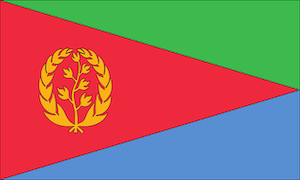
In 2018, Eritrea and Ethiopia agreed to a peace deal, but there has yet to be any visible domestic progress. 12% of the population has fled the “Red Sea nation,” and Eritreans closely trail Syria in the number of refugee applicants seeking asylum in Europe. Many people are seeking asylum due to a national law that forces all Eritrean students, regardless of gender, to complete at least 18 months of military training. People who complete the training have reported many instances of human rights abuses and sexual violence.

The ongoing Syrian Civil War shows no sign of slowing down. On the ground, up to 40 Syrian soldiers have been killed in the north-west region of the country. Idlib is the last stronghold help by anti-Assad forces, and that region has seen an incredible amount of violence in recent weeks. According to a United Nations report, almost 350,000 civilians, 80% of them women and children, have been displaced by the fighting since hostilities escalated at the start of December.

Nicaragua’s two main opposition groups will form a coalition going into their 2021 elections in hopes of defeating President Daniel Ortega. The two groups – the Civic Alliance for Justice and Democracy and Blue and White National Unity – invite any groups and/or individuals that oppose the president to join their coalition, hoping that the recent unrest in the country will spur anti-government momentum.
US Secretary of State Mike Pompeo visited the country this week, where he called upon President Ortega to stop silencing his political opponents in the troubled Central American country. A small group of Nicaraguans demonstrated outside the presidential palace in San José, where Pompeo had talks with Costa Rican President Carlos Alvarado.

Since the resignation of President Evo Morales in November, Bolivian has been plagued with instability, but now it looks like peace might win out. After Morales was found guilty of trying to rig elections, both his supporters and opponents led protests throughout the country. However, Bolivia has been able to edge away from violence because of the work of politicians Jeanin Áñez and Eva Copa. Together, they have rallied their parties together to plan new elections. Ms. Copa has stated that “the priority in those moments was to pacify the country and stop the violence.” In a surprising turn of events, protesters are refraining from taking to the streets, as the real battle will be at the polls.

Kim Jong Un has appointed a new foreign minister, Ri Son Gwon. Gwon is a senior military officer with very little diplomatic experience. He replaces Ri Yong Ho, a diplomat who has many years worth of negotiation experience with Washington. The recent appointment is quite worrisome, as Kim Jong Un is continuing to strengthen the role of the North Korean military on a domestic and global scale, filling his cabinet positions based on party loyalty rather than merit.
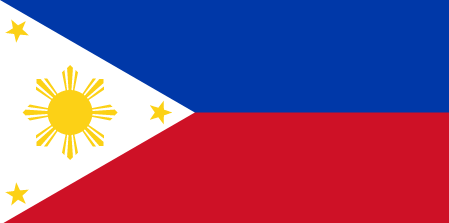
One of the most active volcanoes in the Philippines erupted last week. The United Nations estimated that over half a million people were put at risk, both from the immediate eruption and subsequent earthquakes.
This Friday, the volcano released thick clouds of smoke, confirming scientists’ speculations that more vicious eruptions are going to take place in the near future. The volcanology agency has reported that the next eruption could take place within the next several days or even within the next several hours.

In a dramatic reshuffling of Russia’s leadership, Prime Minister Dmitri Medvedev stepped down from his role just hours after President Vladamir Putin announced changes that would shift power away from the presidency. The constitutional amendments proposed by Putin would help him maintain some political control after he meets his term limit in 2024.
While Putin’s future role in Russia is unknown, he has ruled the country in various roles since 2000, bypassing the 2-term limit of the Presidency by switching in and out of various roles ever eight years. The two offices that his new proposals will give more power to – the State Council and the Prime Minister’s office – are two likely places that Putin might head next. Mikhail Mishustin has been named as the next Prime Minister; he has served as Director of the Federal Tax Service for the past 10 years.
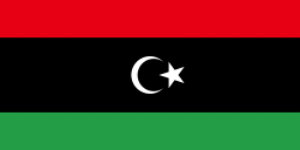
Leaders from the EU, Turkey, and Russia met alongside both parties in the Libyan civil war recently in Berlin. The foreign backers agreed to provide no further military support, honoring the UN arms embargo. The two warring parties, General Khalifa Haftar’s Libyan National Army and UN-backed Government of National Accord, were both in attendance, but refused to meet with each other or agree on the ceasefire themselves. Experts agree that until these parties agree to a ceasefire, the conflict will not dissolve, but this is a small step to limiting the proxy war that has continued since 2011.